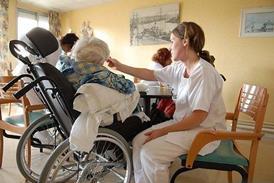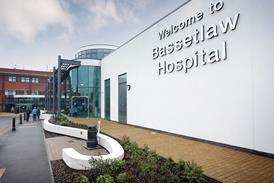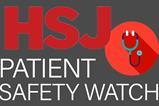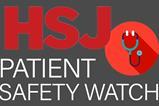HSJ hosts the Patient Safety Watch newsletter, written by Patient Safety Watch chief executive James Titcombe.
Good afternoon and welcome to the latest edition of the Patient Safety Watch newsletter.
NHS payouts for clinical negligence rise
NHS Resolution’s 2023-24 accounts have revealed more than £2.8bn was paid in compensation and indemnity scheme associated costs for clinical negligence, up 6.8 per cent from £2.6bn in 2022-23. Most of this, £2.1bn, was paid in damages, while £545m went towards paying claimants’ legal costs and £169m was for the NHS’s legal costs.
The report also revealed 81 per cent of clinical claims were resolved this year without needing to go to court, up slightly from 80 per cent the year before.
Meanwhile, the Medical Defence Union – which provides indemnity for clinical negligence claims – has called on the government to address legal costs.
Matthew Lee, MDU chief executive, said: “We regularly see legal costs eclipse the amount of compensation awarded to a patient. I have written to the secretary of state for health and social care, urging him to take action. Every pound the NHS pays out in a settlement for clinical negligence is a pound less that cannot be spent on innovation and improving patient care for all.”
My view? While the focus on rising legal costs is understandable, we must not lose sight that every pound spent on compensation reflects a patient or family who has suffered. Patients who are harmed because of unsafe care deserve fair compensation.
This is not just a financial matter – it’s a matter of justice and acknowledgement of the pain, suffering, and often life-altering consequences endured. The solution to lowering these costs must not lie in restricting access to compensation. Instead, we must invest more in what truly matters: patient safety and preventing harm in the first place.
Reform of the clinical negligence system has been the subject of debate and discussion for some time. It is a contentious area, but in my view changes that enable more rapid resolution for patients and families and ensure a much closer link between the costs of harm and investment in learning and patient safety improvement are very much needed.
In other news this edition…
Support managers ‘to do the right thing’ when addressing whistleblowing, says national guardian
Responding to health secretary Wes Streeting’s proposal to fire managers who suppressed whistleblowers, the NHS’s national freedom to speak up guardian Jayne Chidgey-Clark has told HSJ: “We need to provide training, education, and support managers to do the right thing.”
She added this support could include making sure job descriptions and performance reviews assessed the ability to listen to colleagues and publicly recognising those managers who foster positive environments for their teams.
Although she said she would support professional regulation for managers if brought in, she also said she was “a huge believer in the carrot approach, not just sticks”, adding: “Managers need to [listen and take action] because it’s the right thing to do, not just because if they don’t do it, they’re going to get punished.”
NHS waiting lists surge for third month in a row
NHS England data has revealed waiting lists have grown for the third consecutive month to 7.62 million open patient pathways. However, the number of very long waits has fallen – 18-month waits have dropped from 4,597 in May to 2,621 in June.
Mr Streeting said: “14 years of Conservative neglect left the NHS broken, waiting lists rising, and patients failed.”
NHSE’s monthly data release also revealed the extent of the pressure on accident and emergency services. Sir Stephen Powis, NHS national medical director, said: “A&E staff are under significant pressure and the NHS is in the middle of what could be its busiest summer ever, with a total of 4.6 million attendances in the last two months alone and 2024 now having seen the three busiest months for A&E on record.”
In July, 75.2 per cent of patients in emergency departments were seen within four hours, up slightly from 74.6 per cent in June.
Ethnicity cited in baby death case
A case study, published by law firm Fieldfisher, highlights how ethnicity was believed to be a factor in the death of a baby, who collapsed and died within 31 hours of being born, despite the baby’s mother repeatedly raising concerns to maternity staff that her son was in distress.
A Healthcare Safety Investigation Branch review into the death found several issues with the care provided and raised serious concerns that the mother’s ethnicity affected the care she received on the labour ward. The HSIB report concluded there was “some evidence that ethnicity impacted on the care in this case”.
The mother told the investigation “she felt no one appeared to be taking her concerns seriously, which she felt was due to her ‘ethnicity’. Staff would say they would return to see her, and no one came”.
Parents brand CQC’s failure to prosecute ‘shameful’
As reported by BBC News, the parents of Orlando Davis, a baby who died at Worthing Hospital, have condemned the Care Quality Commission for not criminally investigating his death.
The watchdog has said a law which requires prosecution cases to be brought within three years of an alleged offence meant there was not enough time to carry out the investigation.
A coroner has previously ruled Orlando’s death was contributed by neglect after staff failed to recognise his mother had developed hyponatremia – a lower-than-normal level of sodium in the bloodstream – during labour.
Orlando’s parents Robyn and Jonathan Davis said the CQC’s decision had added to their “ongoing grief and pain”.
Statutory medical examiners system to be brought in next month
A written statement from health minister Baroness Merron has confirmed the introduction of a statutory medical examiner system on 9 September. This means that by law, all deaths will become subject to either a medical examiner’s scrutiny or a coroner’s investigation. It will also put the existing medical examiner system’s obligations, duties, and responsibilities on a statutory footing.
A welcome and long overdue change – the recommendation for a medical examiners system goes back to the Shipman report in 2005.
Inquests are just ‘the NHS investigating itself’, says former assistant coroner
Writing for The Times, solicitor, medical practitioner and former assistant coroner Anthony Barton warned coroners’ inquests – intended to be “fact-finding” investigations into how people died – can be the NHS investigating itself.
He writes: “Too often there are no independent clinical expert witnesses. Instead, the court relies on the testimony of doctors acting both as witnesses of fact and as expert witnesses – a potential conflict of interest.
“Where is the essential rigorous independent clinical scrutiny? It is the NHS investigating itself, but with the cloak of respectability of a judicial process. Medically qualified coroners, expert witnesses, or medical assessors can provide the essential independent clinical oversight.”
Sharing some good stuff…
New group B strep eLearning module
The fantastic charity Group B Strep Support has launched a free eLearning module on group B strep. It is aimed at midwives, doctors and others providing maternity and neonatal care, and has been co-produced with families, midwives, obstetricians, neonatologists, and others involved in maternity and neonatal services.
The module – which is based on the latest Royal College of Obstetricians & Gynaecologists and the National Institute for Health and Care Excellence guidelines – takes around 30 minutes to complete and provides an overview of group B strep. Once completed, users are sent a certificate for one CPD credit.
Strengthening open disclosure in maternity services in the English NHS
The final share for this edition is to flag this week’s publication of an important research study.
The DISCERN study aimed to identify critical factors for improving open disclosure from the perspectives of families, doctors, midwives and services, and to produce actionable evidence for service improvement.
The research explored five key mechanisms for open disclosure: meaningful acknowledgement of harm; involvement of those affected in reviews/investigations; support for families’ own sense-making; psychological safety of skilled clinicians (doctors and midwives); and knowing that improvements to care have happened.
Fantastic work and an important read for anyone working in maternity services.
That’s all for this edition, but before signing off, a quick mention to the staff at the cardiac centre in Blackpool Victoria Hospital where I took my dad for an appointment this week. There was a lovely atmosphere and the staff couldn’t have been more kind and helpful – a big thank you from us both!
Please look out for the next edition of this newsletter on 6 September – a little later than normal owing to a holiday! In the meantime, thanks for reading and stay safe.
James Titcombe
































No comments yet